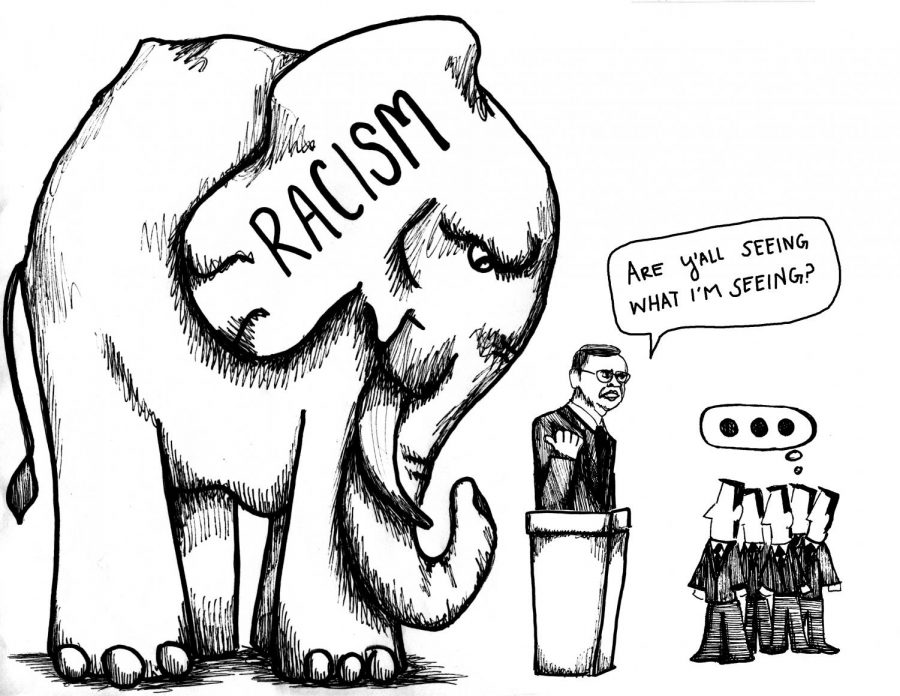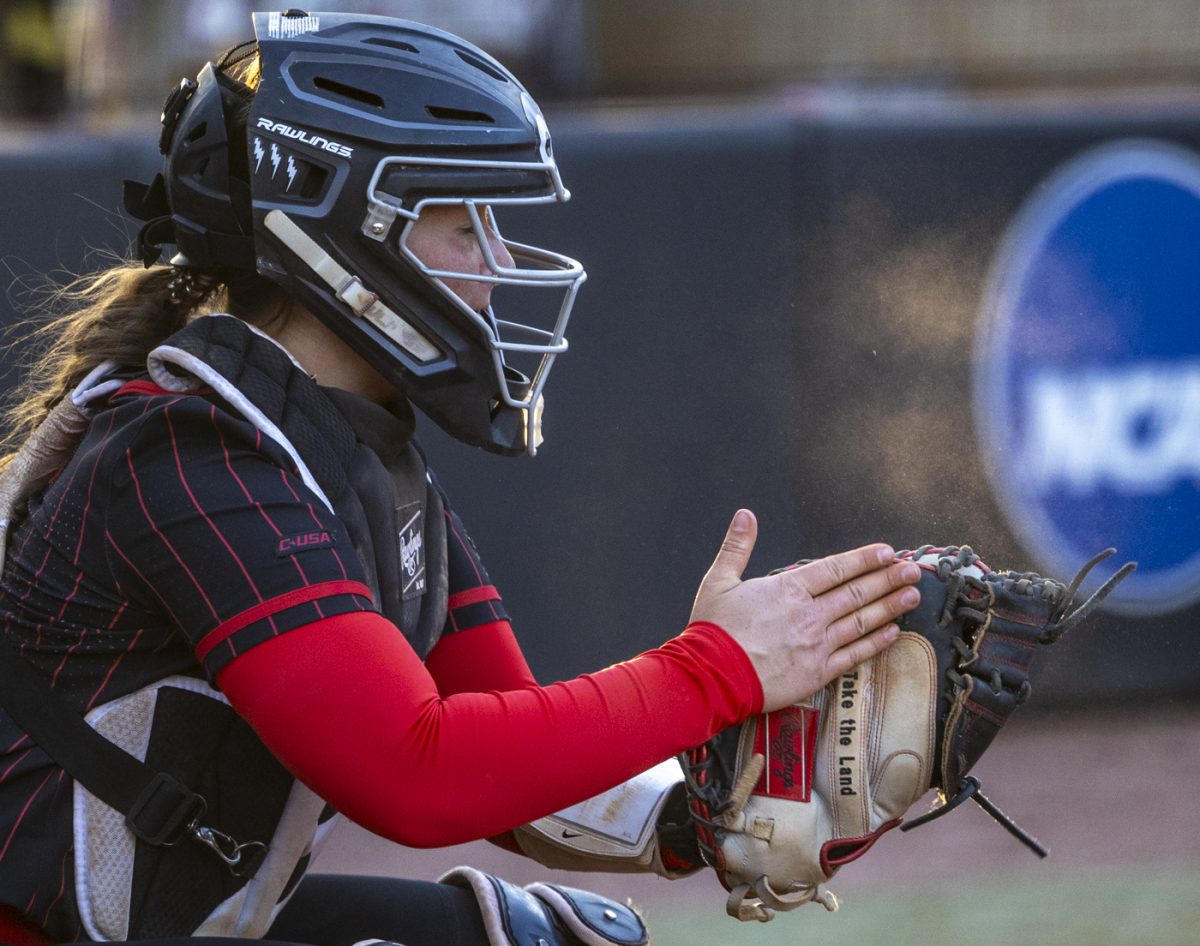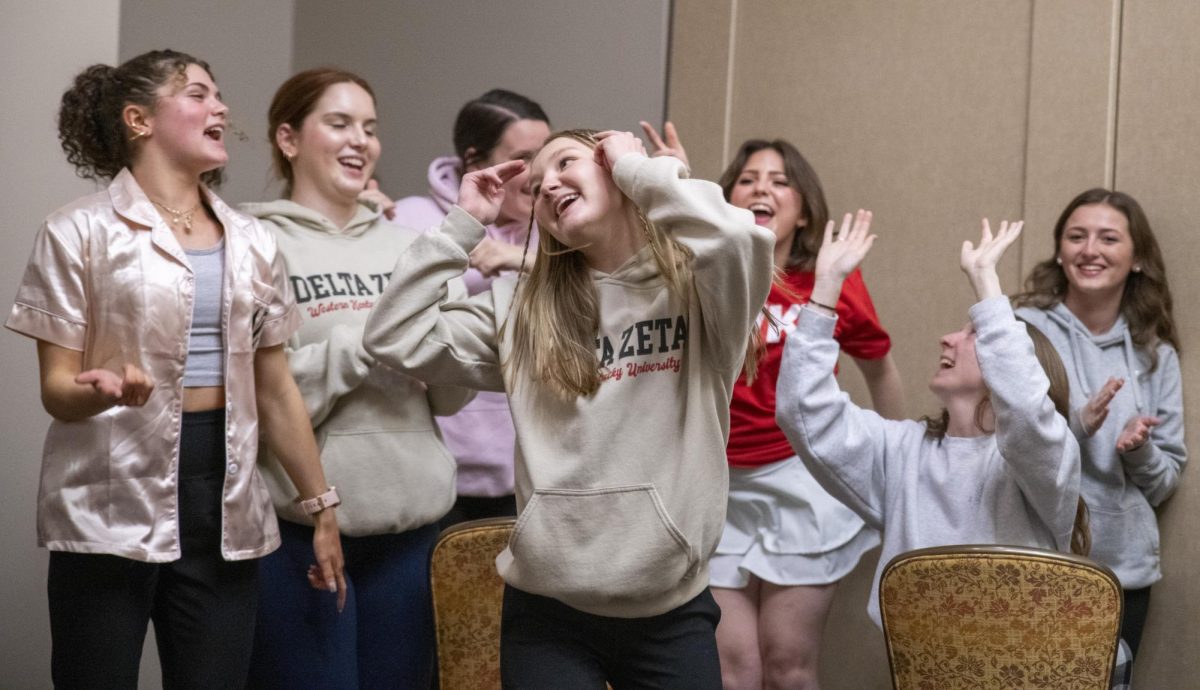EDITORIAL: University must take strong stance after racist vandalism
September 5, 2016
The Issue: Last week a black student had a racial slur carved onto her car
Our Stance: We should not be fooled that because this is 2016 we’ve somehow escaped these blatant forms of racism. The university must take strong, defined steps in confronting this kind of hateful climate.
Last Wednesday, Cheyenne Mitchell, a senior from Lexington, found her car had been vandalized with a racial slur after returning from her class. More specifically, the n-word was carved into the side of her car.
Mitchell told a Herald reporter there had been a brief altercation earlier between a friend of hers and the man who allegedly vandalized her car.
Mitchell said her friend was standing in an empty parking space in PS2 prior to the act and was holding the spot for Mitchell to park her car.
To describe this act of vandalism as unacceptable does not seem to do it quite the justice it deserves. Vile may serve as the better descriptor, but even then we are not fully able to put into words the impression this act likely left on Mitchell.
However, simply decrying this act as vile doesn’t really scratch the surface, nor does it take into account the word itself.
No matter what its origins, by the early 1800s, the n-word was firmly established as a derogative name, Phil Middleton and David Pilgrim write in the African American Registry, a nonprofit education organization.
“It was a term of exclusion, a verbal reason for discrimination. Whether used as a noun, verb, or adjective, it strengthened the stereotype of the lazy, stupid, dirty, worthless nobody,” the duo wrote. “No other American surname carries as much purposeful cruelty.”
We must not be fooled into thinking that racism does not exist here at WKU or in Bowling Green just because it feels like we’ve made small increments of progress toward racial justice as a whole in the United States.
Is it surprising that a blatant form of racism could manifest itself in 2016? Perhaps, but not in other forms.
Gloria Yamato argues in “Something about the subject makes it hard to name” there are four forms of racism: blatant, covert, unintentional and self-righteous.
President Gary Ransdell said on Mitchell’s Facebook post about the incident that this act was “not reflective of our values on the WKU campus.”
This was not the first time Ransdell has taken a public stance against racism on campus.
Back in March 2015, Ransdell addressed the president of every Greek organization in regards to an incident with the chapter of Sigma Alpha Epsilon at the University of Oklahoma where members were caught on video singing a racist chant.
“I will be quick and harsh in my reactions to anything from anyone in any WKU organization that hints or suggests racism on this campus,” Ransdell said at the meeting.
However, while Ransdell claims to be committed to combatting racism at WKU in the public eye this begs the question if the larger institution of WKU is on board as well.
Filing a police report and having damages covered is one thing, but tackling racism from an institutional role is a difficult mountain to climb altogether.
There have been specific organizations and individuals which have taken strides to create programming for black students, LBGT students, international students and other minority student populations.
But from a larger institutional perspective, things look grim.
For instance, the decision to move the Black Cultural Center from the former Sofia-Downing International Center into Downing Student Union and having that be a part of the new Intercultural Student Engagement Center takes something black students have wanted for years and then lumps it into something not specifically for them.
Furthermore, from an institutional role, we have our doubts as to whether the Intercultural Student Engagement Center will tout the Black Cultural Center as part of its programming.
The creation of the new center also came as a result of the “reorganization” of the Office of Institutional Diversity and Inclusion into Intercultural Engagement, further marginalizing resources and opportunities for black students.
As an editorial board we are unable to say with certainty that X, Y or Z solution will somehow free WKU from racism. Because if we could we would. What we can say is from an institutional perspective, we must do better.
Yamato says we must challenge oppression and take a stand against it. In this vein, WKU must work harder to take a stand, lest we become numbed.













